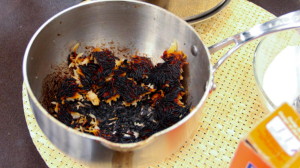Why Asians are thinner: On Cultural Reduction and Health (Contains offensive language)
 Recently, a very prominent website published an article on why Asians tend to be thinner than what I can only presume to be Caucasians (as the writer is Caucasian). It’s not the first article on this topic and it won’t be the last (there is, after all, an entire field of study on comparing cultural behaviours and “health”. Whether this is a worthwhile field or not, I have yet to decide), but the treatment of the material was so completely out-to-lunch racist, that I could not fight posting about it.
Recently, a very prominent website published an article on why Asians tend to be thinner than what I can only presume to be Caucasians (as the writer is Caucasian). It’s not the first article on this topic and it won’t be the last (there is, after all, an entire field of study on comparing cultural behaviours and “health”. Whether this is a worthwhile field or not, I have yet to decide), but the treatment of the material was so completely out-to-lunch racist, that I could not fight posting about it.
The colonial narrative is healthy and strong, even in the fitness world. Other cultures become exoticized and romanticized as though they are not really part of the world of the writer. It’s both disappointing and amusing to read until you realize that the entire premise of such stories is to separate, perpetuating a ‘them vs us’ mentality, particularly when based on a thoroughly inadequate experience of what it means to be of another culture (This petition was created in response to a newspaper article on Filipino cuisine as experienced by a naive Caucasian traveller). It results in the inappropriate homogenization of many cultures under a single, reduced label. This essentially invalidates the richness of what it means to experience any one of those cultures expressed in a myriad of combinations. Read More...
To anyone that says, "A randomized controlled trial in nutrition is impossible!" I can now say, "You just don’t want it badly enough."
 Should you go on the Mediterranean diet?
Should you go on the Mediterranean diet?As you are already probably aware, the Mediterranean diet is one of the diets that started it all. Its rules are relatively simple: lots of olive oil, lots of fruits and nuts, lots of vegetables and cereals, and some fish and chicken, and not a lot of dairy, red meat, processed meats, and sweets and some wine (And while Greece is part of Mediterranean, Greek yoghurt does not seem to feature prominently in this diet–so think on that a bit…)
The Mediterranean diet has been studied a lot. One could argue that of all the diets that have gone though fad phases, including the Atkin’s diet, the Mediterranean diet has been studied the most. In particular, its effects on preventing cardiovascular events (stroke, heart attacks and death from either) has been of particular interest. There have been major cohort studies, but never a randomized controlled trial. Read More...
You don’t add higher octane gas to the house that’s on fire to put it out.

The World Health Organization’s definition of health, which I had to memorize in the first month of medical school, is, “The state of complete physical, mental and social well-being and not merely the absence of disease or infirmity.”
Personally, I think this is ridiculous because it’s basically tautological. The term “well-being” is essentially synonymous with “health”. In fact, the Merriam-Webster dictionary defines “well-being” as, “The state of being happy, healthy or prosperous.” Way to go, 1948 WHO’er’s. It’s like looking in the dictionary for the definition of “happy” and seeing “not sad” and then looking up “sad” and seeing its definition as “not happy.” (Flashbacks to being the child of immigrant parents inserted here. And yes, I was a weird kid and yes, my parents will tell you that.) Read More...